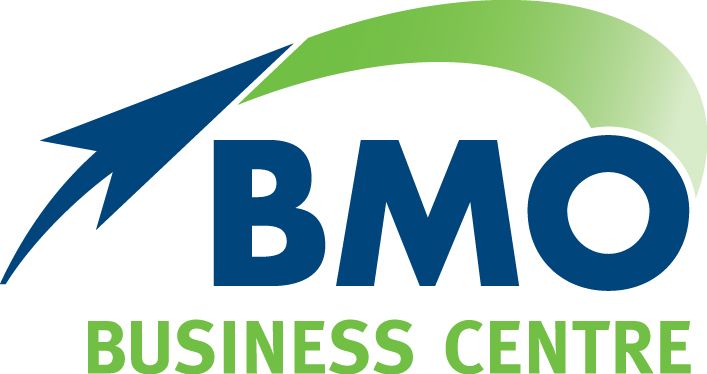9 money tips if you’re having a baby
Starting a family or growing one can be exciting, but it can also be expensive. Here are some ways to prepare yourself financially.
1. Make sure you’re across medical expenses
Medical costs might include ultrasounds, birthing classes, special tests, vaccinations, and check-ups, so it’s worth jotting these down, so you’ve got an idea of everything that could be coming up.
You’ll also want to consider whether you want to have your baby in a public or private hospital, as there may be out-of-pocket expenses with either option, even if you have Medicare or private health insurance.
Many private health funds also have waiting periods before you can claim on pregnancy and birth-related costs, so if this is something you’re considering, you’ll want to look into this early.
Meanwhile, if you want your child to be covered under a health insurance policy, you may need to do some investigating, as a single or couple policy may need to be extended to a family policy.
2. Consider other upfront and ongoing costs
There are things you may need to buy before the baby arrives, in addition to other things you might need on an ongoing basis. This might include things like:
- car seat and stroller
- cot and mattress
- change table and high chair
- maternity clothes, baby clothes and baby bag
- food, nappies, bottles and formula
- childcare
3. Research your employer entitlements
Many organisations have their own parental leave policies, which may include various paid and unpaid parental leave entitlements for new mothers and fathers.
If you’re unsure, speak to your employer to see if there is a scheme in place and find out what they offer as part of this. At the same time, you may also want to find out if you’re eligible for any annual leave, long-service leave, or regular unpaid leave, if you’re planning to take time off work.
When you’re speaking to your employer, it may also be helpful to check the company policy around superannuation. Super generally isn’t paid when you’re on parental leave, so you might want to consider whether you’ll make additional contributions while you’re still working.
4. Explore the government’s paid parental leave scheme
With the paid parental leave scheme , primary carers of newborn or adopted children can apply for parental leave payments from the government, which provides the national minimum wage for up to 18 weeks.
These payments can be received in addition to any payments your employer pays under its own parental leave policy, if you’re eligible.
You can also apply up to three months before your child’s due date, which may help you to better prepare for your time off, as you’ll be able to choose when your paid parental leave period starts. For instance, you may choose to receive this money after you’ve received any employer payments you may be eligible for.
5. Investigate other government assistance options
Beyond the paid parental leave scheme, there’s a range of additional support options for families.
You may be entitled to other assistance such as Dad and Partner Pay , which provides up to two weeks of government-funded pay, or the Family Tax Benefit , which helps with the cost of raising children.
The Child Care Subsidy also provides assistance with childcare fees for eligible families. From 7 March 2022, families with more than one child aged five or under (in childcare) will also get a higher subsidy for their second child and younger children.
For more information about payments and services to help with the cost of raising children, check out the Services Australia website. You may also be interested in whether you’re eligible for school subsidies.
6. Create a family budget with the information you’ve collected
After you’ve considered the expenses, as well as any entitlements you may be eligible for and how long you may take off work, it’s worth drawing up a budget and starting to put some money aside.
When you do this, take into account any existing day-to-day expenses you might have, such as utility bills, groceries, petrol, insurance, rent or home loan repayments, and other debts you might be paying off.
You may also want to factor in any additional sources of income (such as investments), and whether you have family that may be able to assist in helping you minimise expenses. For instance, they may provide babysitting for your children.
7. Prioritise your existing debts if you can
If you have existing debts , like credit cards, personal loans or a home loan, you may want to consider how you can reduce these debts as much as possible before the baby arrives, particularly as you may encounter other unexpected expenses along the way.
8. Consider your will and broader estate plan
If a little person is about to enter your life, who you want to take care of, thinking about your estate plan may also make good sense, noting this involves more than just drawing up a will.
It’ll include decisions around who will look after you, and your child, if you’re ever in a situation where you can’t make decisions for yourself, as well as documenting how you want your assets (which may include insurance and super ) to be distributed should you pass away.
9. Remember that money isn’t everything
If it’s your first baby, while it may be tempting to invest in the most expensive pram, baby clothes, or day care centre for your little one, it’s the love for your child, not the amount you spend on them, that matters.
Source: AMP
The information in this article does not take into account your objectives, needs and circumstances. We recommend that you obtain investment and taxation advice specific to your investment objectives, financial situation and particular needs before making any investment decision or acting on any of the information contained in this document. Subject to law, Capstone Financial Planning nor their directors, employees or authorised representatives gives any representation or warranty as to the reliability, accuracy or completeness of the information; or accepts any responsibility for any person acting, or refraining from acting, on the basis of the information contained in this document. Principal Wealth Management Pty Ltd trading as BMO Financial Solutions ABN 53 109 336 601 is a Corporate Authorised Representative (CAR 277821) of Capstone Financial Planning Pty Ltd ABN 24 093 733 969 Australian Financial Services Licence (AFSL) No. 223135.
The post 9 money tips if you’re having a baby appeared first on BMO Accountants.
Contact Us
BMO Dalby
By Mail:
PO Box 180
Dalby Qld 4405
In Person: 178 Drayton Street (access via Hogan Street)
Dalby Qld 4405
BMO Charleville
By Mail:
PO Box 198
Charleville Qld 4470
In Person: 58 Alfred Street
Charleville Old 4470
BMO Roma
By Mail: PO Box 300 Roma Qld 4455
In Person: 137 McDowall Street Roma Qld 4455
Office Hours:
Monday – Thursday 8am – 5pm and Friday 8am – 3pm
PH: 07 4662 3722
FAX: 07 4662 5975
Useful Links
Stay in Touch
Footer Contact Form
We will get back to you as soon as possible
Please try again later
Contact Us
BMO Dalby
By Mail: PO Box 180 Dalby Qld 4405
In Person: 178 Drayton Street (access via Hogan Street) Dalby
BMO Charleville
By Mail:
PO Box 198
Charleville Qld 4470
In Person: 58 Alfred Street
Charleville Old 4470
BMO Roma
By Mail: PO Box 300 Roma Qld 4455
In Person: 137 McDowall Street Roma Qld 4455
Office Hours: Monday – Thursday 8am – 5pm and Friday 8am – 3pm
PH:
07 4662 3722
FAX: 07 4662 5975
Footer Contact Form
We will get back to you as soon as possible
Please try again later
All Rights Reserved | BMO Dalby | Website design & development by Hey Marketing


